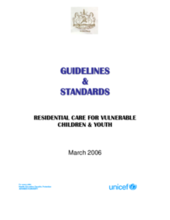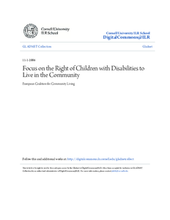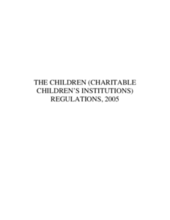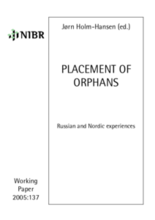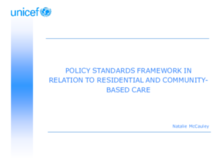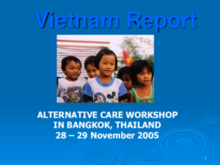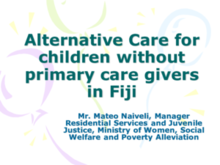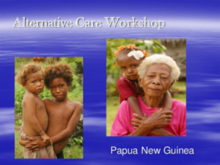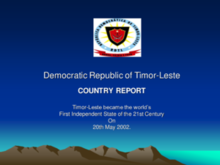Displaying 1421 - 1430 of 1510
A situational analysis of policy and care surrounding children affected by HIV/AIDS in Lesotho. Includes a comprehensive, practice-oriented discussion of alternatives to residential care, placement procedures and standards of residential care.
Advocates for the right of children with disabilities to live in the community. Provides recommendations on how to ensure a successful transition from institutional to community-based care. Focuses on the importance of family support and the right to education.
Results of a survey examining the quality of institutional care in Sri Lanka. Highlights gaps in existing policies and procedures.
This document outlines the regulations for charitable children's institutions (CCIs) in Kenya.
The chapters in this Research Note are grouped in three sections. The first section (chapters 2–5) presents the international experiences. The second (chapters 6–7) presents the Russian background, whereas the third section (chapter 8–9) offers an updated presentation of Russian realities as to the placement of orphans.
This presentation from UNICEF was given at the Alternative Care Workshop in Bangkok in November 2005. It outlines the standards and principles for residential and community-based care in the region.
This presentation was given at the Alternative Care Workshop in Bangkok in November 2005.
This presentation was given at the Alternative Care Workshop in Bangkok in November 2005. It provides an overview of the situation of children without parental care, or primary caregivers, in Fiji and the child welfare system in the country.
This presentation was given at the Alternative Care Workshop in Bangkok in November 2005.
This presentation was given at the Alternative Care Workshop in Bangkok in November 2005.

